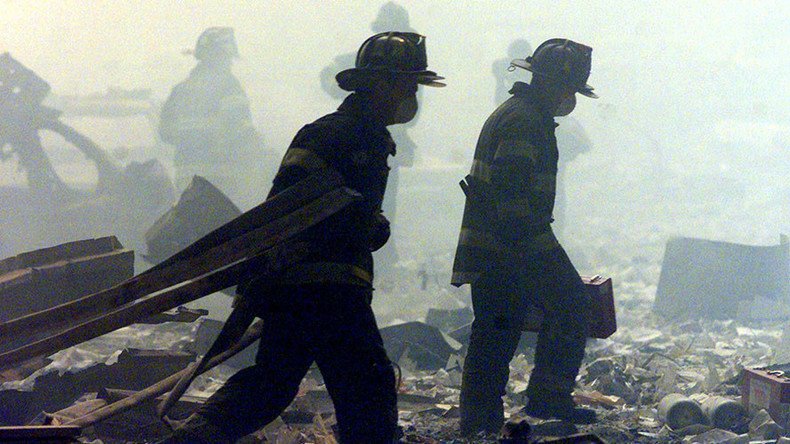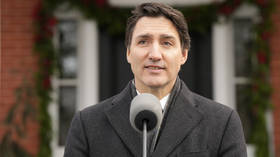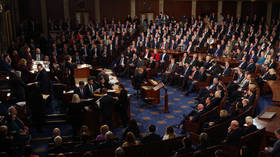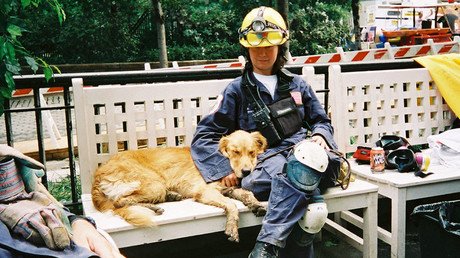Cancers linked to 9/11 grow exponentially as 15th anniversary looms

More than 5,400 people have been diagnosed with cancers linked to the attacks of September 11, 2001, according to the US government. The number could be higher, as the current total reflects only those who have enrolled in a 9/11 federal health program.
The World Trade Center Health Program, run by the Centers for Disease Control and Prevention, has counted 5,441 people diagnosed with cancers believed to be associated with the 9/11 attacks, as of June 30.
Most of those diagnosed were emergency responders, recovery or cleanup workers, and volunteers who worked during or after the attacks at the World Trade Center in New York; the Pentagon in Arlington, Virginia; and the Shanksville, Pennsylvania site where the fourth hijacked airliner crashed. More than 700 people lived, worked or attended school near the World Trade Center on September 11, 2001, or in the months immediately after the attacks.
Nearly half of those diagnosed with cancer are between the ages of 55 and 64.
"It’s not unheard of to see five to 10 people who worked on the pile getting treated for cancer” https://t.co/RPTk42sbLs
— New York Post (@nypost) August 15, 2016
The 5,441 cancer patients in the program is a sharp increase from the 1,822 cases reported in January 2014. The 9/11 Victim Compensation Fund offers payments to those who have been diagnosed.
"It’s been steady for at least the last year and a half – we’re seeing new people here being certified for cancer 10 to 15 times week. That’s every week," Dr. Michael Crane, medical director of the WTC Health Program at Mount Sinai Hospital, told the New York Post.
Those in the WTC Health Program have been diagnosed with 6,378 separate cancers, indicating that some people have more than one type of cancer possibly associated with 9/11, officials with the program said.
One WTC pic.twitter.com/mvC15ZBX4A
— WTCProgress (@WTCProgress) August 15, 2016
The federal government has listed more than 50 types of cancer believed to be related to the smoke, dust and debris scattered around lower Manhattan after two hijacked passenger planes crashed into World Trade Center buildings. Five types of cancer – leukemia, lymphoma, multiple myeloma, prostate and thyroid – have been found at higher rates among 9/11 victims as opposed to the general population, the NY Post reported.
The WTC Health Program currently assists and monitors around 75,000 people, according to CNN, including police officers, firefighters, utility workers, and others. More than 12,000 people in the program have been diagnosed with 9/11-related mental health issues, while more than 32,000 have been diagnosed with breathing and digestive problems, such as asthma or chronic obstructive pulmonary disease.
Updates for PAR-16-098 "Cooperative Research Agreements Related to World Trade Center Health Program (U01)" https://t.co/GLc4Wnemwj
— NIH Funding (@NIHFunding) August 15, 2016
The Fire Department of New York also has a 9/11 health program with around 16,000 members.
To mark the 15th anniversary of the attacks, the World Trade Center Health Registry, a program within the New York City Department of Health, is scheduled to release a report in September on cancers associated with 9/11.














